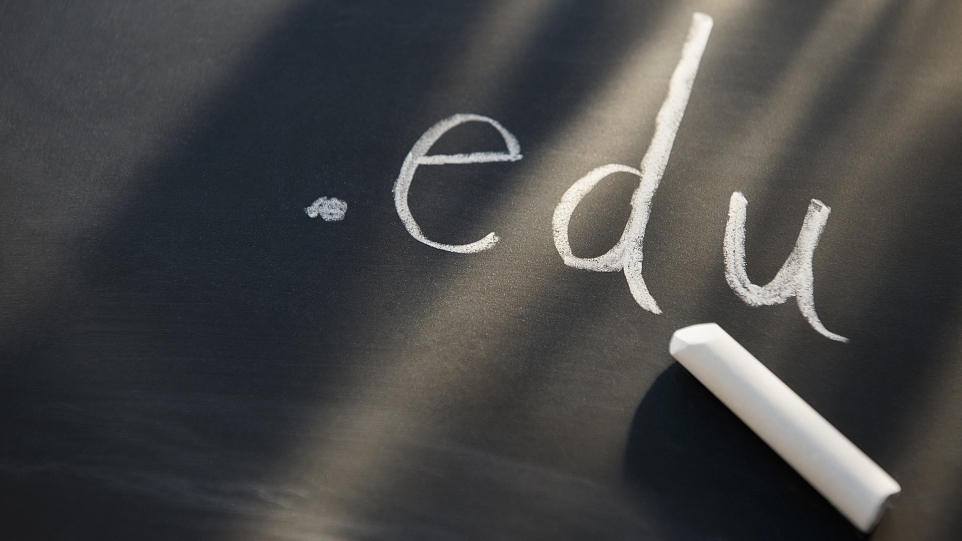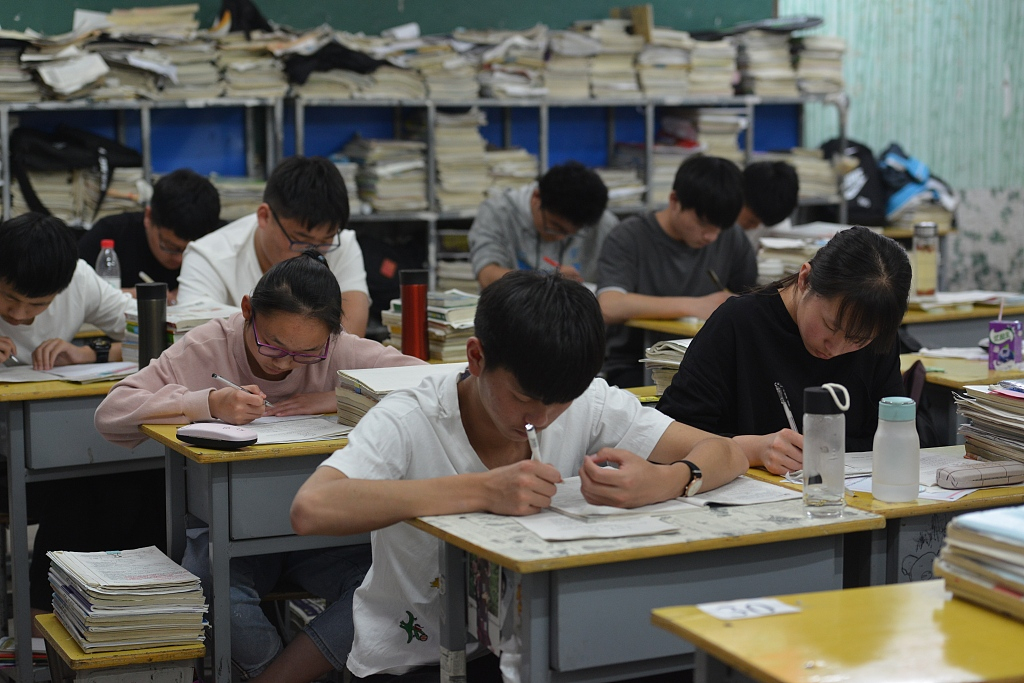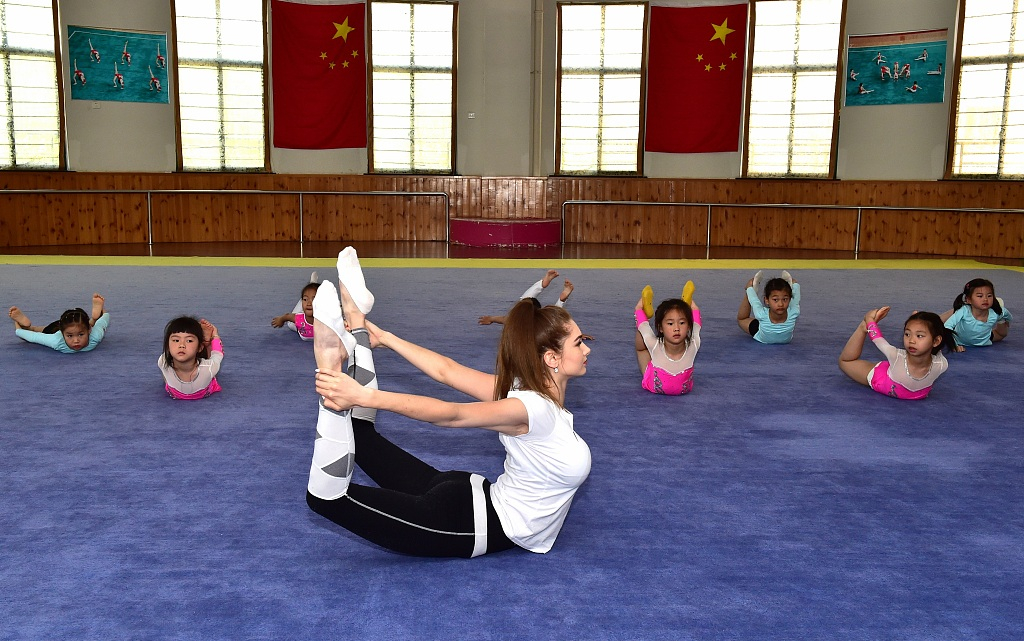
Opinion
10:59, 16-May-2019
What's behind Chinese parents' anxieties?
Liu Jianxi

"Don't let the children fail from the start" is perhaps a Bible verse for Chinese parents. Under this doctrine, China's middle class is straining every nerve to provide their kids the best educational resources they can think of – extravagant summer programs, private schooling, exclusive extracurricular activities, etc.
Spending tens of thousands of yuan on children's education a month is nothing unusual in China where parents are sacrificing their own living standards to make their kids the most distinguished. Still remember the story of a high-paid mom complaining that her monthly salary of 30,000 yuan (4,490 U.S. dollars) is not enough for her daughter's summer vacation that went viral online two years ago when the average monthly income in China was 6,000 yuan?
HSBC's 2017 report on global education expenses suggests that the percentage of Chinese parents paying for children's private schools (93 percent) far exceeds that of the U.S. (46 percent) and France (32 percent).
Two years after the HSBC's report, Chinese parents' anxiety levels show no positive signs. A new survey by China's online education platform SmartStudy.com shows that 68 percent of Chinese parents felt "very anxious" and "anxious" about their kids' education. According to a China Youth Daily's survey, more than half of the respondents registered their children for extracurricular courses during the summer holiday because others did.
What are the reasons behind Chinese parents' anxieties? The societal changes that China has witnessed in the past decades may explain. While the flows between grassroots and the upper class were almost nonexistent in the past, education has now become the quickest way for ordinary people to climb onto the ladder of social status.
But the imbalanced distribution of educational resources means children from ordinary families will have to compete for limited places in first-ranking universities and well-paid companies. Given the above, their parents will not miss any chance to make them more distinguished and competitive.

High school students are preparing for Gaokao in Fuyang, east China's Anhui Province, May 10, 2019. /VCG Photo
High school students are preparing for Gaokao in Fuyang, east China's Anhui Province, May 10, 2019. /VCG Photo
For some well-off parents, education seems to have become a new luxury. While a Louis Vuitton handbag was enough to satisfy their vanity, they are now happier to hear praises for their versatile and well-educated children.
Undeniably, parents' overemphasis on education has instilled a new momentum to the Chinese market. But some private institutes are taking advantage of such a mentality for colossal profits, of which certain child star brokerage companies are typical examples.
It is not unusual that parents, especially those picking up children at the highly-charged private schools, are stopped by the so-called brokers for a "friendly chat." The purpose of the chats, of course, is to lure these rich but anxious parents to "invest" in a film or a TV series that would make their children superstars.
Cannot wait to see their kids on TV, these parents, in most cases, would sign a contract worth hundreds of thousands of yuan with alacrity. Missing this golden opportunity for their little stars and not falling prey to malevolent companies is what these parents are unable to accept.
The reality is, without suspense, a shattered star dream. The money is returned with only training classes and parents are asked to invest more to buy their kids a role to play in the film. Although many have reported the police about the swindle, such brokerage companies are still springing up in China to "satisfy" parents' ambitions for their kids.

Kindergarten kids are leaning artistic gymnastics in Jinhua, east China's Zhejiang Province, May 9, 2019. /VCG Photo
Kindergarten kids are leaning artistic gymnastics in Jinhua, east China's Zhejiang Province, May 9, 2019. /VCG Photo
Some institutes are more cunning. In pursuit of a higher enrollment rate, some schools and kindergartens are naming after globally renowned education establishments such as Tsinghua, Oxford, and Cambridge, despite the fact that they have no connections with these universities.
The naming, as many believe, is to mislead parents. Recently, Tsinghua University sued a slew of "Tsinghua kindergartens" for using its name without permission. The legal action against trademark infringement is encouraging, but may not be a fundamental solution. Parents' anxiety is perhaps the root cause for the growing number of "Tsinghua kindergartens" and "Cambridge primary schools."
Some institutes have also started to do "researches" on their curricula. Recently, an EQ training center for children aging from nine-month-old to 15-year-old generated an online buzz.
According to its staff, the courses are designed to help children better manage their emotions, interact with their peers more confidently and become more resilient in the face of setbacks.
Admittedly, EQ is important. But is it rational to spend tens of thousands of yuan a year for EQ classes? Before registering their kids for different kinds of educational programs, Chinese parents need to think twice – is it for the children's benefits or purely out of their anxieties?
The best education is always from families, not educational institutes. Instead of pouring a great deal of money into summer programs and counting on training centers to educate their kids, these parents need to understand the essence of education: helping kids to accept and be content with what they will be in the society- be it a high-level official or a waitress in a fast food store. This is perhaps what Chinese kids need the most.
(If you want to contribute and have specific expertise, please contact us at opinions@cgtn.com.)

SITEMAP
Copyright © 2018 CGTN. Beijing ICP prepared NO.16065310-3
Copyright © 2018 CGTN. Beijing ICP prepared NO.16065310-3